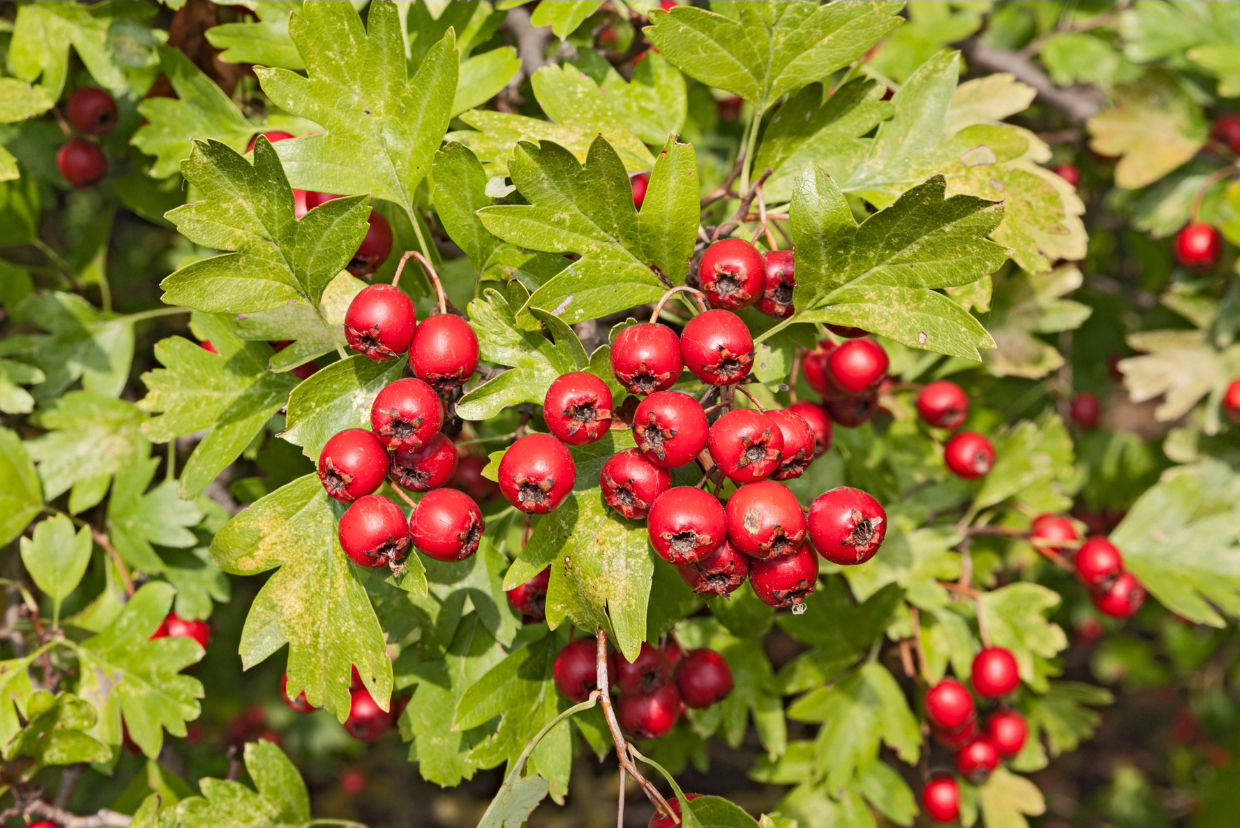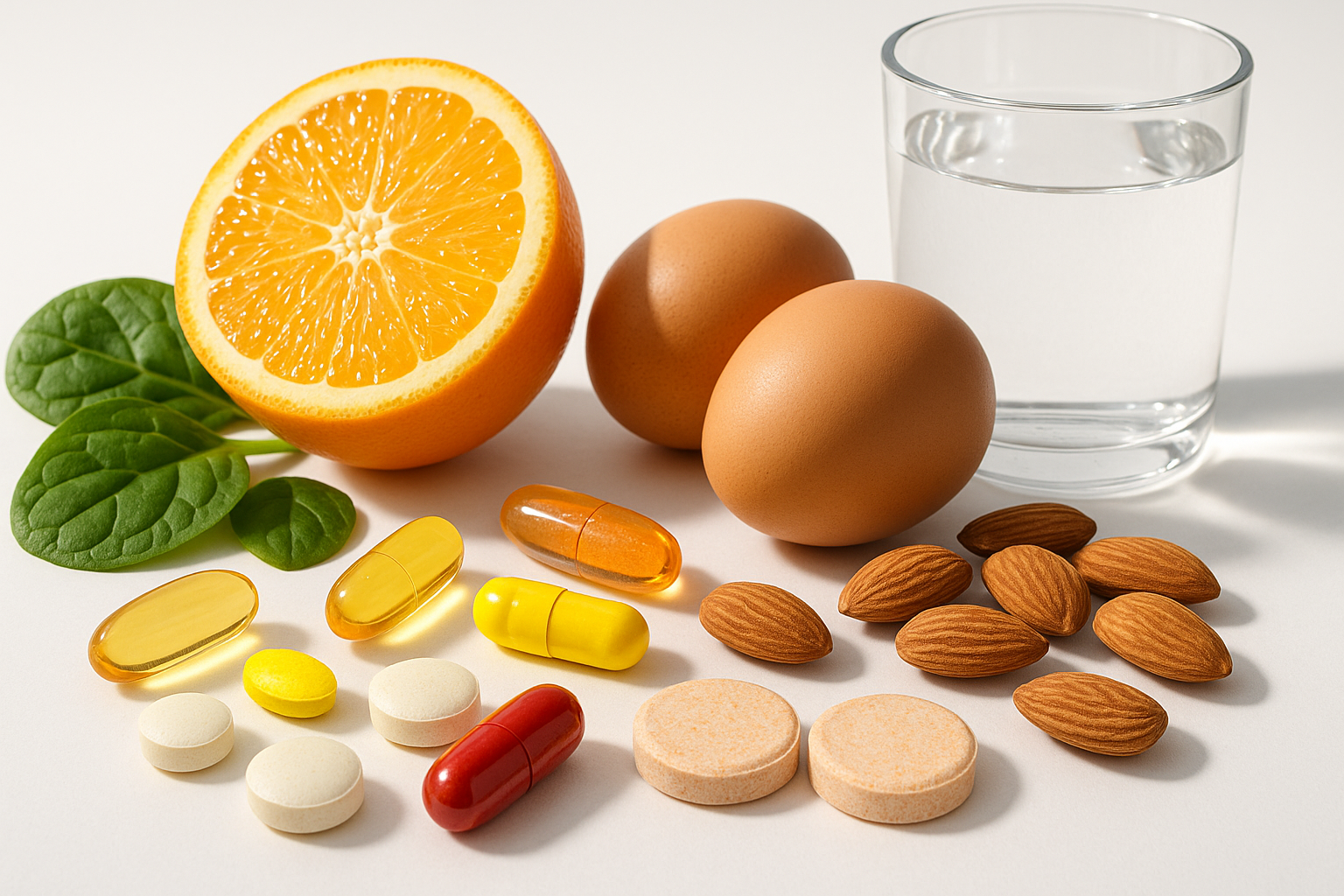Hawthorn: A Timeless Herb for Cardiovascular Wellness
Hawthorn (Crataegus monogyna), often associated with its delicate flowers and vibrant red berries, has long been used in traditional medicine to support heart health. Recognized for its potent cardiovascular benefits, hawthorn is particularly effective in managing
coronary artery disease (CAD) and promoting overall heart wellness. Its combination of antioxidants, anti-inflammatory compounds, and heart-strengthening properties makes it a natural remedy for those seeking a holistic approach to cardiovascular health.
Key Benefits of Hawthorn for Heart Health
1. Improving Heart Function
Hawthorn enhances the heart’s ability to pump blood effectively, a crucial benefit for individuals with CAD.
- Strengthened Contractions: Hawthorn extracts improve the heart's contractility, ensuring efficient blood circulation even in cases of reduced blood flow caused by arterial blockages.
- Symptom Relief: By improving pumping efficiency, hawthorn alleviates symptoms of heart failure, such as fatigue and shortness of breath, helping patients regain quality of life.
2. Reducing Blood Pressure
High blood pressure is a major risk factor for CAD, and hawthorn offers natural hypotensive effects.
- Vasodilation: Hawthorn relaxes blood vessels, improving circulation and reducing strain on the heart.
- Lower Risk of Complications: By reducing blood pressure, hawthorn helps prevent conditions like heart attacks and strokes, common complications of CAD.
3. Anti-Inflammatory Effects
Chronic inflammation accelerates artery damage, contributing to CAD.
- Flavonoids and Polyphenols: These compounds in hawthorn reduce inflammation in the blood vessels and heart.
- Slower Disease Progression: By addressing inflammation, hawthorn helps mitigate the underlying causes of CAD, supporting long-term heart health.
4. Antioxidant Protection
Oxidative stress, caused by free radicals, damages blood vessels and worsens CAD.
- Neutralizing Free Radicals: Hawthorn’s antioxidants protect the arteries from oxidative damage, preserving their function.
- Healthier Blood Vessels: Reduced oxidative stress leads to better vascular health and lower risks of heart complications.
5. Enhancing Endothelial Function
The endothelium is a thin layer of cells lining blood vessels that regulates vascular health.
- Improved Blood Flow: Hawthorn promotes vasodilation, ensuring smoother blood flow and reducing the risk of blood clots.
- Better Pressure Regulation: Healthy endothelium contributes to balanced blood pressure, further protecting against CAD.
Precautions When Using Hawthorn
While hawthorn is generally safe, it’s essential to take certain precautions:
- Drug Interactions: Hawthorn can interact with heart medications, blood thinners, and antihypertensive drugs. Always consult a healthcare provider before starting supplementation.
- Potential Side Effects: In rare cases, hawthorn may cause mild dizziness, nausea, or digestive discomfort. If symptoms occur, reduce the dosage or discontinue use.
- Pregnancy and Breastfeeding: The safety of hawthorn during pregnancy and breastfeeding hasn’t been fully established, so avoid use unless directed by a healthcare provider.
Where Does Hawthorn Grow?
Hawthorn is native to the
Northern Hemisphere, with species thriving in Europe, Asia, North Africa, and North America. The plant adapts well to various climates, making it a popular shrub for therapeutic use worldwide. Its flowers, leaves, and berries are harvested for their medicinal properties.
How to Incorporate Hawthorn into Your Routine
Hawthorn is available in various forms, including:
- Capsules and Tablets: Convenient for daily supplementation.
- Teas: Made from hawthorn leaves, flowers, or berries, providing a soothing way to enjoy its benefits.
- Tinctures: Concentrated liquid extracts offering quick absorption and ease of use.
Dosage: Follow the manufacturer’s instructions or consult a healthcare provider for the appropriate dose tailored to your needs.
Conclusion
Hawthorn is a time-tested remedy offering a natural solution to enhance heart health, particularly for individuals with coronary artery disease. From improving heart function and reducing blood pressure to combating inflammation and oxidative stress, hawthorn supports cardiovascular wellness on multiple fronts. Incorporating hawthorn into your lifestyle, under the guidance of a healthcare provider, can be a significant step toward better heart health and overall well-being.
References
- Ried, K., & Sullivan, T. (2009). Effects of Hawthorn on Cardiovascular Risk Factors: A Review of Randomized Controlled Trials. Journal of Clinical Hypertension, 11(8), 464-469. Read Study
- Tadi, P., & Hedges, J. (2020). Hawthorn: A Review of the Evidence for Its Cardiovascular Benefits. American Journal of Therapeutics, 27(4), e435-e439. Explore Research
- Zhu, J., & Wei, J. (2013). Hawthorn Extract for Hypertension: A Systematic Review and Meta-Analysis. Journal of Alternative and Complementary Medicine, 19(7), 606-613. Access Study
- The Potential Cardiovascular Benefits of Hawthorn. National Center for Biotechnology Information (NCBI). Learn More
- Coronary Artery Disease: Symptoms, Causes, and Heart Health Tips
- Heart Health Benefits of Garlic for CAD Prevention & Management










